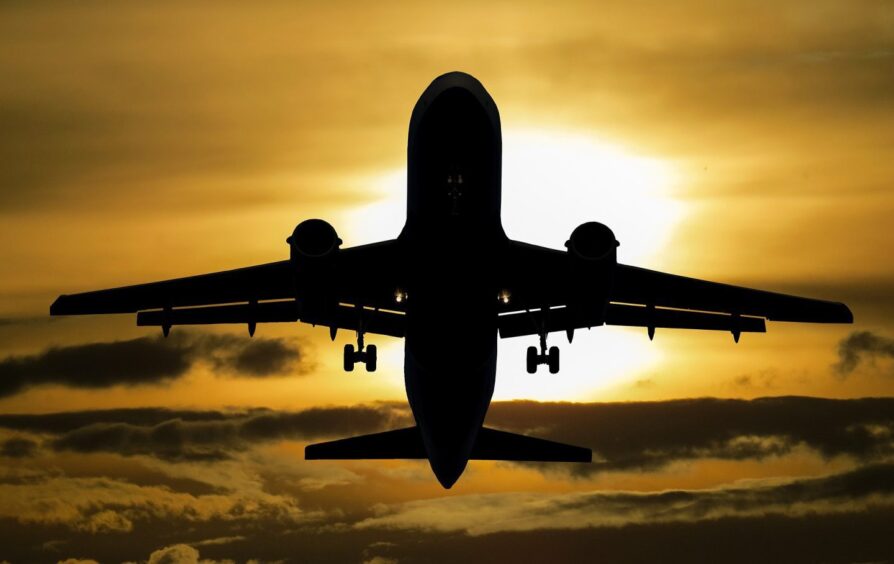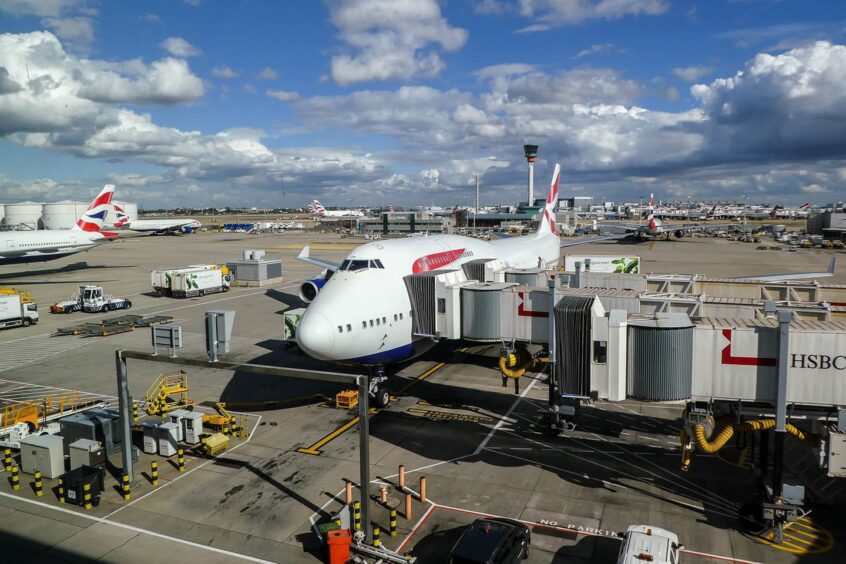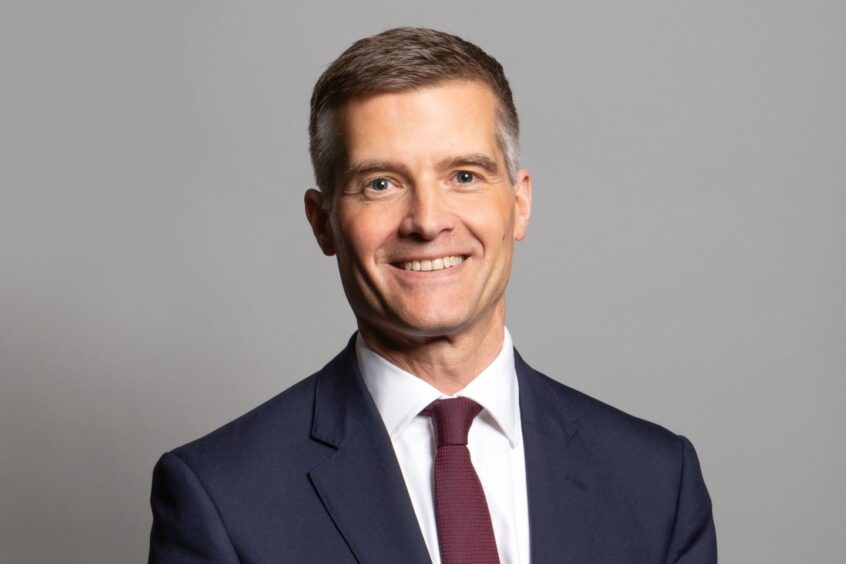
Airlines have raised concerns with the UK Government’s plans to introduce a sustainable aviation fuel (SAF) mandate in 2025.
In comments to Energy Voice, Loganair warned against the costs imposed by the mandate, suggesting that it could leave smaller, regional and domestic flights disproportionately affected.
The company’s head of sustainability, Andy Smith, said: “Whilst recognising the importance of SAF to the wider industry, Loganair is concerned that the costs of the mandate, like the costs of carbon imposed via the Emissions Trading Scheme, fall disproportionately on the smaller, regional and domestic flights, which can create distortions in the market and lead to emissions leaking into other transport modes, such as road.”
In addition, there are concerns that the higher cost of SAF compared to conventional jet fuel will make flying unaffordable for many travellers. An EasyJet spokesperson said that such developments are “impossible to predict,” due to the fact they would be determined by supply and demand dynamics.
Despite this, they added that EasyJet hopes that “increased demand will stimulate more players to enter the market and an increased scale of supply will help keep costs down”.
Barriers to adoption
The UK Government regulation stipulates a minimum blend of low-carbon fuels, starting at 2% of total jet fuel demand at the outset, rising to 10% in 2030 and 22% in 2040.
From 2040, SAF amounts are set to remain at the same level in percentage terms, balancing increasing demand against improving availability of supply, according to the Department for Transport.
The mandate will require 1.2 million tonnes of sustainable aviation fuel in 2030 to be able to meet requirements, with the UK’s current announced (planned) capacity sitting at just 600 tonnes. An additional 600 tonnes will need to be realised through imports or capacity yet to be planned – according to a report released by environmental consultant ICF.
Addressing the issue, the transport ministry highlighted that it had launched a consultation to boost investment in SAF production plants.

Both Heathrow and Edinburgh airports told Energy Voice that low production volumes and lack of infrastructure were the primary barriers to widespread SAF adoption and the success of the mandate.
Heathrow urged the government to “act on the consultation findings at pace,” so that a revenue mechanism could “deliver tangible results this decade and makes compliance with the mandate achievable.”
Gordon Robertson, chief communications and sustainability officer at Edinburgh Airport, said that the government must support the mandate by installing infrastructure and cultivating a regulatory environment that allows for the production of SAF at a competitive price, setting the conditions for its widespread adoption.
Chicken and egg
He also said that the airport considers that there is a potential for Scotland to “establish its place in SAF production and use the expertise and knowledge that our industries have and turn them to this emerging one.”
He added: “We need to have a supply of SAF that is available to airports in Scotland and the rest of the UK, and that would make it far easier for airlines to meet the mandate. It is almost a chicken and egg scenario where one follows the other so we really need this work to move forward at pace.”
According to Platts, the premium of SAF on a cost, insurance, and freight (CIF) basis in Northwest Europe was at $1,800 per tonne on April 24, with conventional jet fuel valued at $835 per tonne.
Global demand for the fuel could reach 350,000 barrels per day (bpd) by 2030, and 2.1mn bpd by 2050, according to S&P Global Commodity Insights forecasts.
Robertson noted that “these fuels are here or are coming. It’s about how we get there and how the industry can be incentivised to hasten that research and development, while also ensuring it is ready for it when it arrives.”
Other paths
Despite welcoming the mandate for SAF, Loganair’s Smith said that smaller, regional airlines will likely have other paths available to them, as “the majority of European aviation emissions are produced by wide-body long haul aircraft and SAF is the primary method by which this segment of the industry can decarbonise”.
He cited battery electric or hydrogen as viable options, underscoring Loganair’s belief that “these zero emissions technologies will be more appropriate for our business.”
EasyJet’s spokesperson said the company continues to adhere to required sustainable aviation fuel mandates across different markets, and that it will “comply with the UK mandate when it kicks in from 2025”.
They added that the company welcomes “the delay to and subsequent increase in the cap on hydro-processed esters and fatty acids (HEFA) -based SAF to allow producers time to scale-up more advanced fuels but encourage the government to keep the buy-out price under review to avoid increasing prices to airline customers disproportionately”.
They noted that SAF blend percentages are dependent on the volumes available on the markets the company’s aircraft operate in.
The company was not able to provide an exact product split between SAF from HEFA, hydrogen, and other synthetic fuels (eSAF).
However, the spokesperson said: “SAF will be an important interim solution over the next several decades until we can fully transition to zero carbon emission aircraft – which is our ultimate goal.”
The ‘drop-in’ nature of these fuels will be key to their success, as they do not, in most cases, require major fleet adaptations.
SAF benefits
However, UK trade body Airlines UK welcomed the announcement, stating: “UK airlines recognise the need for a sustainable aviation fuel mandate as a vital step towards the net-zero transition as SAF will be one of the important technologies to achieve aviation’s net zero commitments.”
It highlighted that government regulations on the policy are important, and incentives are required to raise production and reduce the costs of SAF as quickly as possible.
“Without these the UK will be at a competitive disadvantage with consumers at risk of higher fares,” it said.
In its announcement of the mandate, the government noted that the mandate will be the first of such to be put into law in the world, and is expected to provide around 10,000 jobs, boosting the UK’s economy by £1.8bn, becoming the most significant policy to be released under the “Jet Zero” strategy so far.
The plan aims to ensure net-zero aviation by 2040 – delivering “guilt-free flying” to customers while preventing aviation-related carbon emissions from rising above pre-pandemic levels.
Jet Zero also allowed for SAF projects to apply for a £165mn Advanced Fuel Fund.
Commenting on the new mandate, Mark Harper, Transport Secretary, said: “As part of our plan to grow the economy, the measures will give both UK aviation and the UK SAF industry the certainty they need to keep creating skilled British jobs while giving passengers the freedom to continue travelling by air in a way that’s fit for the future.”
Adapting
It is not just airlines that are having to adapt. In discussion with Energy Voice, Charli Johnston, press officer at Heathrow airport, cited the airport’s ongoing SAF incentive scheme and overall sustainability strategy – titled Heathrow 2.0.
She noted the strategy’s importance in “reducing our scope 3 [indirect] emissions, which make up 95% of Heathrow’s total GHG emissions”.
In order to reach these targets, Heathrow is aiming for 11% SAF usage by 2030 – 1% higher than the mandate.
The airport’s incentive scheme halves the price gap between traditional aviation fuel kerosene and SAF, helping make the latter more viable as a commercial option.
Now in its third year, the scheme will see airlines using record volumes of SAF in 2024, Johnston said, with “£71m available to airlines through the incentive, targeting up to 2.5% of aviation fuel, which if achieved amounts to 155,000 tonnes of aviation fuel.”
She added that “20 passenger airlines and one cargo airline are involved in the incentive.”
Meanwhile, DHL Express spokesperson Sabine Hartmann told EnergyVoice that the mandate will “significantly contribute to the UK airlines’ SAF uplift as the mandate in Sweden and Norway and France has proven”.
The company was unable to share details on costs following increased SAF usage, but mentioned that a cost per carbon of €325 per tonne would mean a 1kg intra-EU shipment would cost the consumer an additional €0.05.
 © Supplied by UK Parliament
© Supplied by UK Parliament